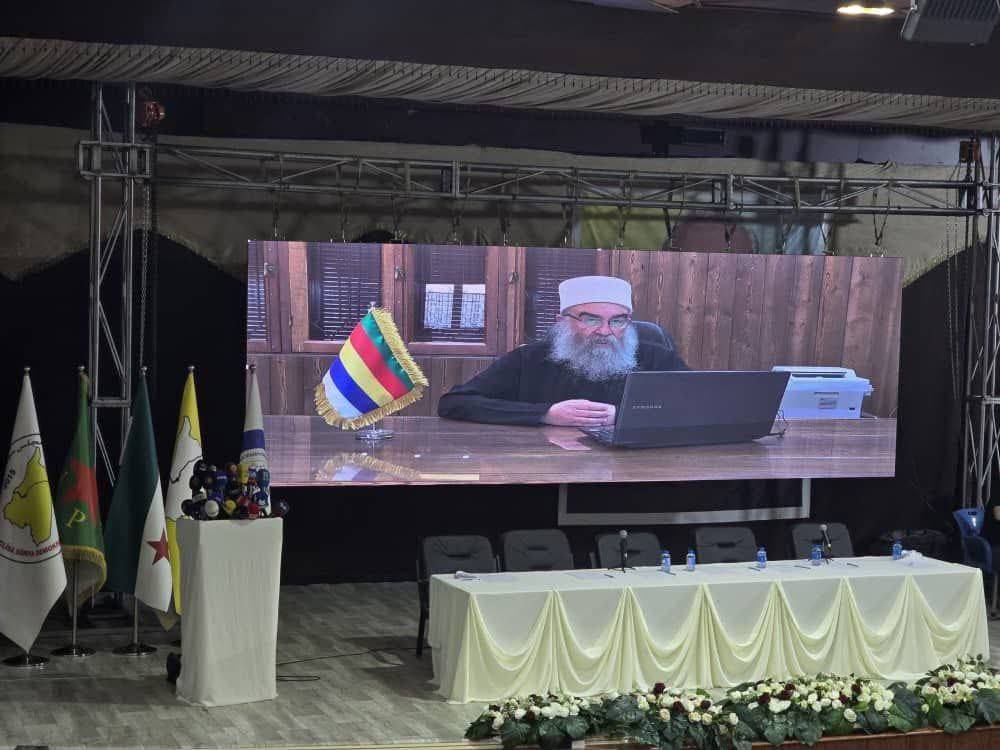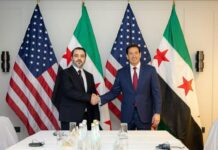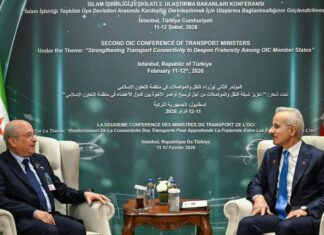
The Syrian government has pulled out of planned negotiations with the Syrian Democratic Forces (SDF) in Paris, citing the SDF’s recent conference in Hasakah as a direct violation of commitments under the March 10 agreement. Officials in Damascus say the event—attended by religious and tribal figures, including controversial Druze leader Hikmat al-Hijri—undermines unity efforts and advances a separatist agenda with foreign backing.
A government source, quoted by SANA, called the Hasakah gathering “a blow to ongoing negotiation efforts” and warned it represented “a fragile alliance” of groups relying on “external support” to monopolize representation. The source accused the SDF of attempting to internationalize Syria’s internal affairs, invite foreign intervention, and promote proposals that contradict the integration of northeastern Syria’s civilian and military structures into state institutions.
Charges of Recruitment and Attacks
Beyond political disagreements, human rights groups have accused the SDF of continued rights abuses, including the abduction of minors—primarily underage girls—for military recruitment, as well as the arrest and targeting of civilians, political opponents, and government forces. State officials say these practices run counter to international humanitarian norms and threaten fragile stability in contested regions.
Hijri’s participation drew particular condemnation due to his public praise for Israel, role in Suwayda’s unrest and his calls for foreign intervention in Suwayda. Syrian authorities and regional analysts view his alignment with the SDF as further evidence of foreign entanglement in domestic disputes. Hijri’s links to armed militias accused of war crimes and sectarian violence, cause fears that his cooperation with the SDF could inflame sectarian divisions.
Regional and Diplomatic Fallout
The Hasakah conference, formally titled “Unity of Position of Northeastern Syria’s Components,” promoted a decentralized political model, broader participation of ethnic and religious communities, and a democratic constitution. However, Damascus insists such structural decisions must emerge from a national constitutional process approved by referendum, not through what it describes as factional agreements or “status quo” impositions.
Qutaiba Idlibi, director of the American Affairs Department at the Syrian Foreign Ministry, criticized the SDF’s message as contradictory. “It’s not right to talk about unity and reject partition while conferences are held on sectarian and ethnic grounds,” he wrote on X, urging actions that heal ethnic and sectarian divisions rather than deepen them.
The government’s withdrawal from Paris talks has cast further doubt on the viability of international mediation efforts, particularly as Brussels prepares to host a separate Syrian components meeting on Aug. 10. Organizers insist the Brussels gathering is a preparatory discussion without binding outcomes, but its proximity to the Hasakah event has fueled speculation about coordinated political maneuvering.
Damascus maintains it is willing to engage with all Syrian constituencies, provided talks occur within Syria and align with the principles of territorial integrity and national sovereignty. For now, the collapse of the Paris initiative underscores the widening gap between the government and the SDF—and the potential for deeper regional repercussions if both sides fail to return to direct, good-faith negotiations.








